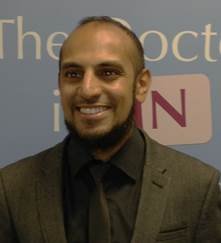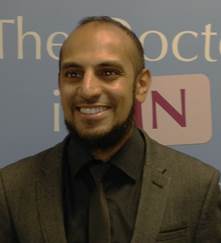STEM CELL SECTOR OFFERS INVESTORS RETURNS TO REGENERATE THEIR INVESTMENT PORTFOLIOS
Published by Gbaf News
Posted on September 5, 2014
6 min readLast updated: January 22, 2026

Published by Gbaf News
Posted on September 5, 2014
6 min readLast updated: January 22, 2026

Investors looking for a sector that has been largely overlooked, but which has the potential to deliver robust returns and strong growth, should target the stem cell industry. Unfairly criticised largely because of the use of embryonic stem cells, the sector’s profile has recently significantly improved due to a range of factors, both clinical and financial. It is still underfunded relative to other healthcare areas, but now the sector is beginning to attract greater fund flows from both the public and, most importantly, the private sector.
Below Dr Husein K Salem, founder and CEO of Precious Cells Group, a pioneering London, UK-based international provider of stem cell banking and related technologies, reviews what is driving this change of view – and the investment now beginning to flow into the sector.

Dr Husein K Salem
Globally the stem cell sector is benefiting from a change in perception. What has prompted this and is convincing funders to loosen their purse strings? It’s a range of factors: greater and more convincing evidence and clinical trials of the benefits of stem cell therapy, recognition that an increasingly wider variety of ailments and illnesses will respond to stem cells, that there is an opinion based on the current growth of stem cells studies that we may see a one in five chance of an individual needing to use stem cells to treat a serious illness in the near future, and better regulation and governance continues to develop alongside the research.
The global stem cell technology sector is now one of the fastest developing areas of the healthcare market, projected to grow from $5.6 billion last year to nearly $12.2 billion in 2018. The European market for stem cell products is expected to grow by a CAGR of 11% and is forecast to reach nearly £1 billion by 2016. Similarly the stem cell therapy market is forecast to grow by a CAGR of close to 40% to be worth close to £200 million by 2020.
Pivotal to the further growth of the sector is stem cell banking. Proper extraction, handling, processing (such as volume reduction with cord blood and bone marrow stem cells) and storage of stem cells are vital if they are to be used effectively in the growing array of technologies and therapies. Though governments globally have made commitments to establish public stem cell banks, most are to varying degrees underfunded. This has given the private sector an opportunity to supplement public provision and offer a much-needed service that has the potential to significantly influence medical outcomes positively.
Private sector companies, which have emerged to fill this gap, have not been uniform in terms of their commitment to good governance and regulation. At Precious Cells Group, we have taken a lead in this area. A division of the company is dedicated to compliance and security and it is led by Dr. Salmaan Dalvi, formerly a key figure at the UK’s NHS Blood and Transplant (NHSBT), and one of the most respected leaders in the cord blood stem cell field.
Evolution in how stem cells are extracted, as well as stored, also promises accelerated growth opportunities and larger markets. For example, we recently acquired top stem cell technology specialist Pharmacells Group, which has its own proprietary, patented adult blood stem cell collection service, Oristem®, which allows stem cells to be collected from adults’ blood. Being able to offer this service enables us to target the much larger health concerned adult market and will also accelerate growth in initiating clinical trials for stem cell therapies. The technology also has enormous potential in developing the next generation technology for the blood banking services currently offered through the NHSBT.
Due to recent technological advances, stem cell therapy is now under investigation to treat a much wider range of medical conditions where repair and re-growth of tissue is a critical factor. Diseases and medical conditions that have been shown to have early exciting preliminary benefits from stem cell therapy include diabetes, cancer, heart disease, eye diseases, metabolic diseases, gastrointestinal tract diseases, musculoskeletal disorders, immune system diseases, spinal cord injuries and neurological diseases.
Unsurprisingly, greater recognition of the sector’s growth potential is attracting investment attention from public bodies, private equity and venture capital firms, keen to invest in what is increasingly seen as a potential transformation in health care. Largely it is SMEs that stand to benefit. The EU’s Regenerative Medicine in Europe Project revealed that of the close to 400 companies operating in the industry over 90% were SMEs.
In the US, the National Institute for Health has recently increased its budget for stem cell research to some $1.3billion, while the California Institute for Regenerative Medicine is committing around $600 million to stem cell research.
In Europe, the UK has seen some promising trends. Three UK Research Councils have announced their intentions to invest £25 million in research to address the scientific and technical challenges required to support the development of regenerative medicine therapies for a range of applications.
Also, last year AIM-listed regenerative therapy company ReNeuron was granted £7.8m by the Welsh Government together with a further £5m equity investment from Wales Life Sciences Investment Fund.
Following the public money is private investment. Last year US leader, Mesoblast raised $170 million via a private placement. Following this, in July, Mesoblast announced that it planned to launch the world’s first stem cell therapy product in a developed world market – Japan (2015). This could be followed by a US launch in 2016. This would mark a seismic shift in the stem cell industry, opening the door for a wave of new mass market products and therapies.
Big pharma is also taking notice. Swiss drug major Novartis, for example, has invested $35m in the Israeli stem cell specialist Gamida Cell. In exchange Novartis will receive a 15% equity and an option to fully acquire the company. Venture capital and private equity firms, beginning to anticipate strong returns have now started to invest too. For instance, DefiniGen, which uses stem cell science for drug testing, has recently raised £2.28m in a round of venture capital financing,
At Precious Cells Group, we have been one of the most successful in the sector, raising several million over the past 3 years, which has helped to accelerate our international expansion. Better funding options for the sector as a whole will allow it to offer the real life insurance that stem cells can provide to a growing community that will increasingly span the globe.
Explore more articles in the Business category











